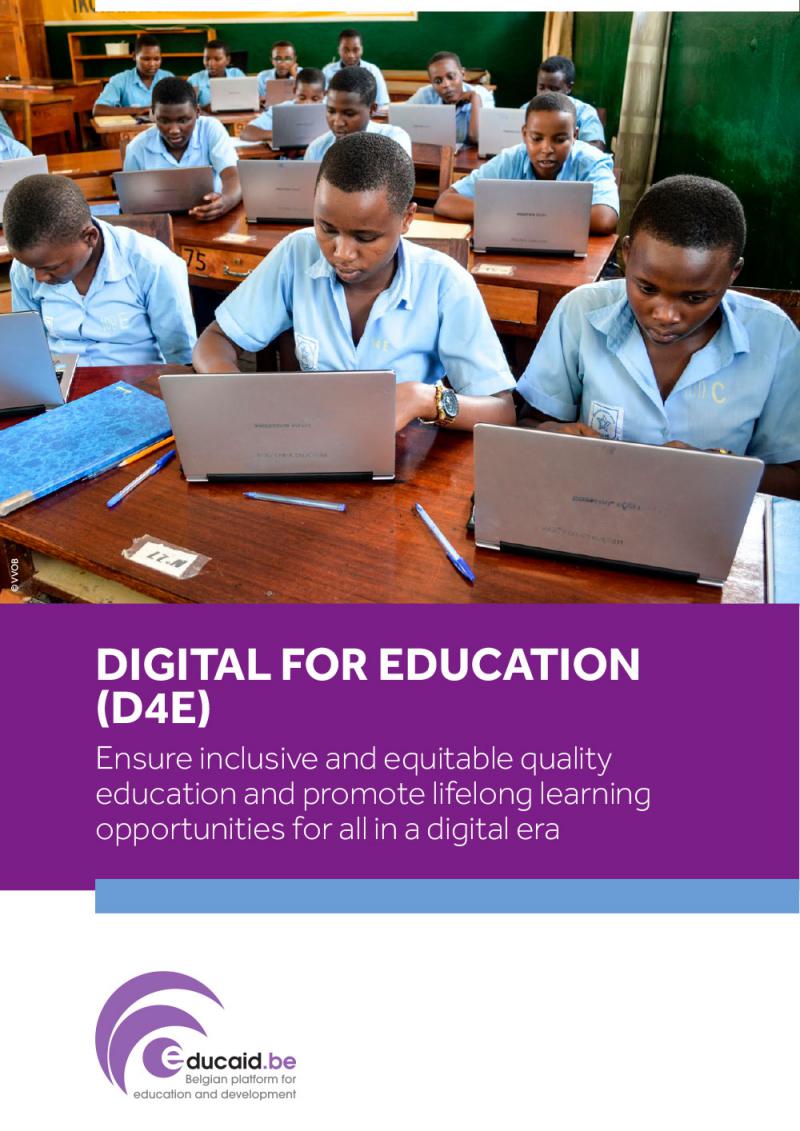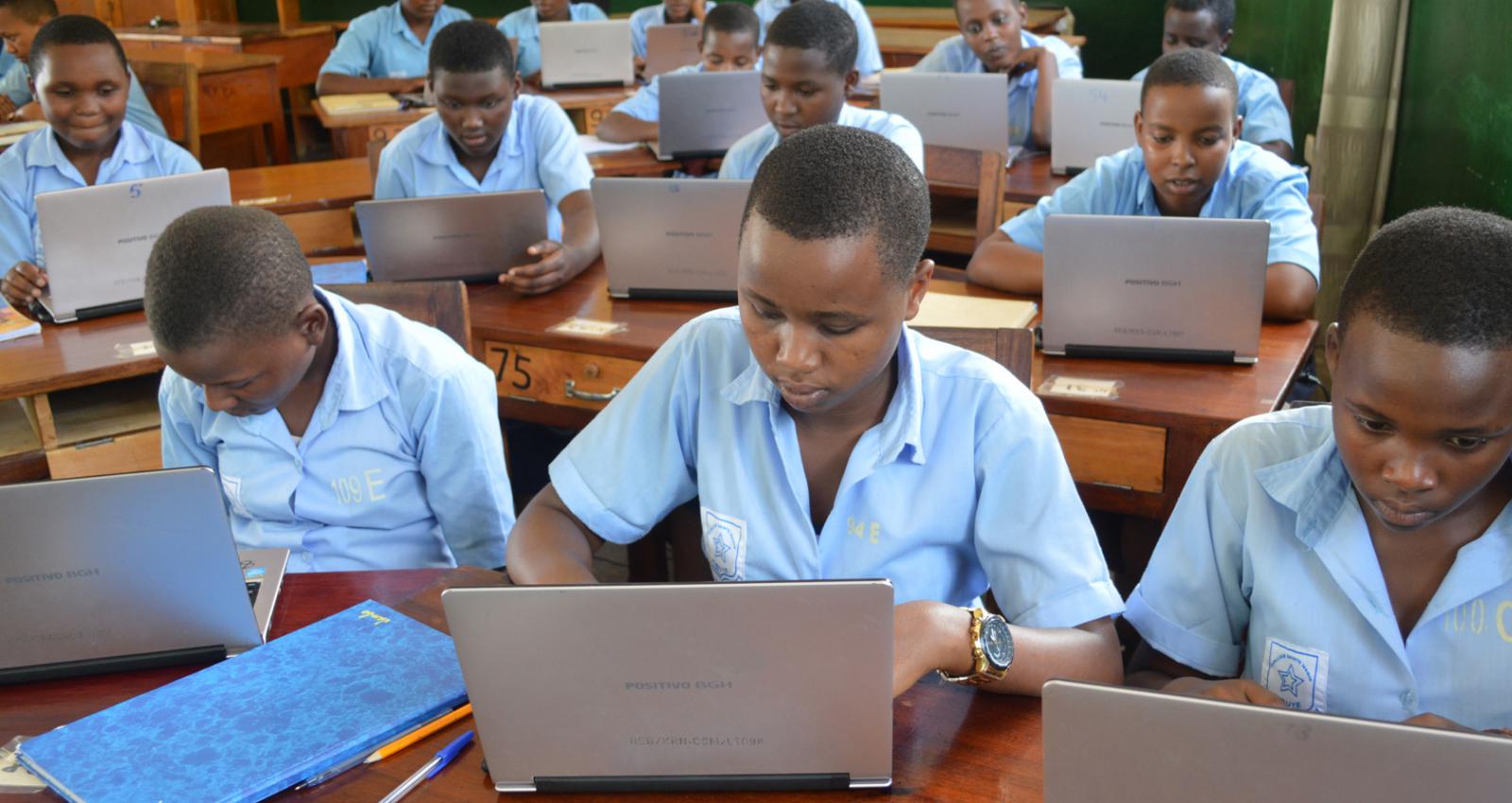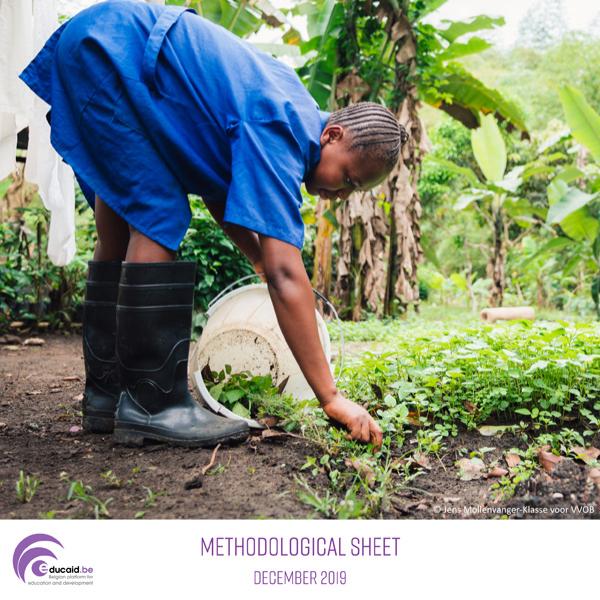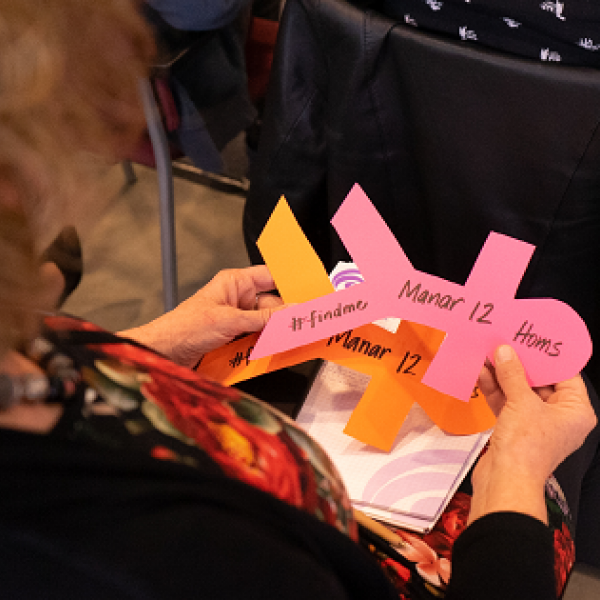In its 2018 Memorandum, Educaid.be recommended Belgian policy makers to “Encourage the use of ICT tools in an equitable and inclusive way, thus supporting education and giving vulnerable children and youth access to information and skills which are crucial for their critical thinking and participation in the labour market.”
The aim of Digital for Education (D4E), Ensure inclusive and equitable quality education and promote lifelong learning opportunities for all in a digital era is to provide a framework for D4E policies and activities of Belgian decision makers and development actors alike. It is based on existing literature combined with the experiences of the members of the Educaid.be working group on Digitalisation in Education. Although some of the issues raised in this paper are valid anywhere in the world, the focus of our work – in line with the mandate of the platform – is on digitalisation in education in low- and middle-income countries (LMICs), with its specific challenges.
The document outlines the potential of digitalisation in education to positively impact both formal and informal education, but also the challenges and risks which may impede effective implementation of D4E interventions, and which could even widen the digital gap if not properly addressed. We identify a number of conditions that are to be met and strategies to be put in place in order for D4E interventions to be truly successful.



